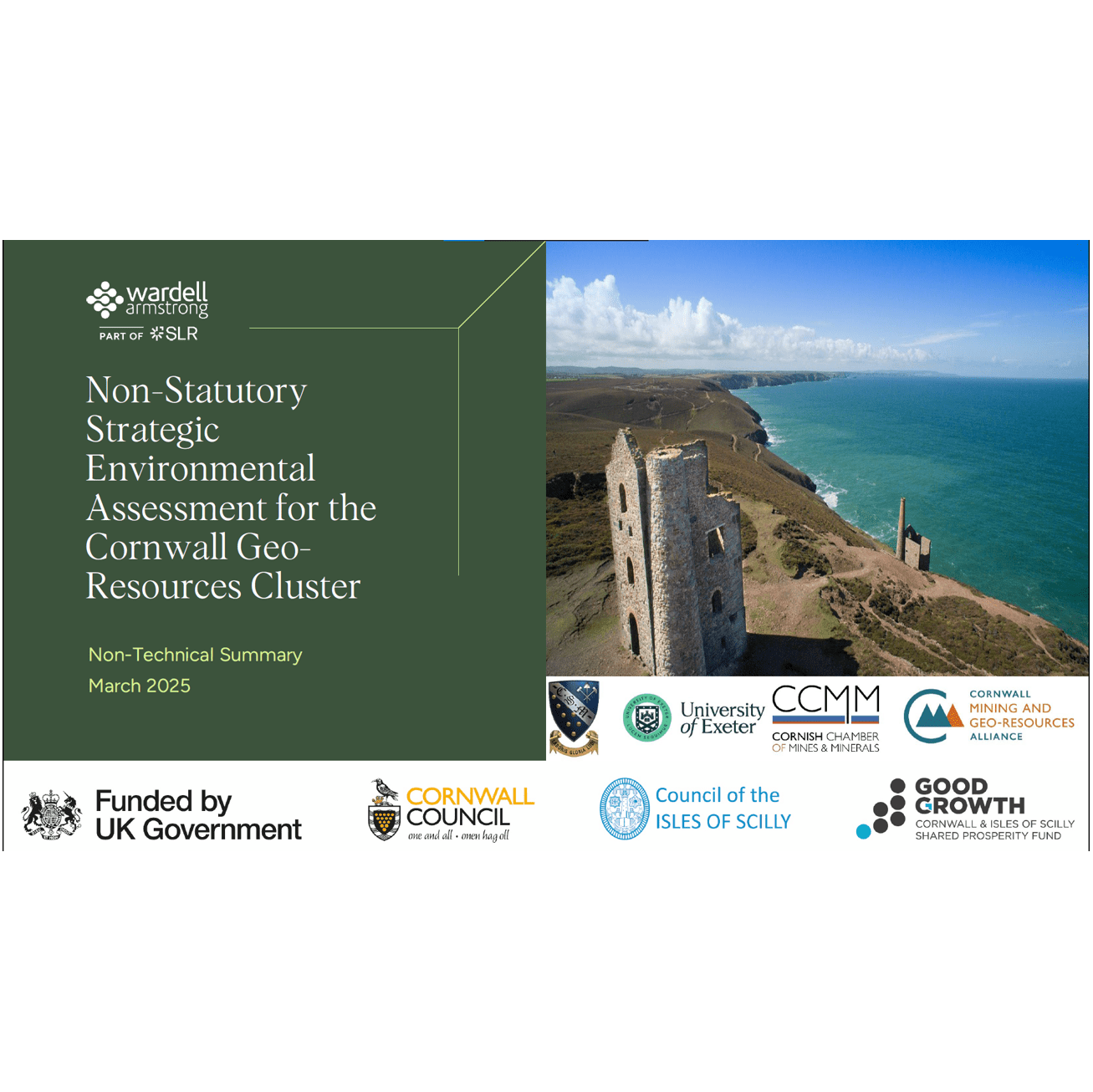
Cornwall Georesources Cluster Decarbonisation Plan (Non-Technical Summary)
The full report is a high level study looking into the decarbonisation of the Cornish Geo-Resources industry. This includes the mitigation of current emissions, transport methods, energy infrastructure and generation and more.
The Cornwall and the Isles of Scilly Geo-Resources Cluster (GRC) Decarbonisation Plan highlights the urgent need to tackle climate change by reducing carbon emissions. At the same time, it acknowledges that the extraction of essential materials—such as aggregate, metals and critical minerals—is crucial for building the technology needed for a greener future. To continue their work responsibly, extractive industries must take clear steps to reduce their environmental impact while remaining open and transparent with local communities.
The report originally set out to estimate the carbon emissions from those companies within the GRC. Due to the limited amount of primary data directly available from member organisations, it was necessary to use industry standards and benchmarks to estimate these. Despite this limitation, the report identifies a menu of options, detailing practical ways in which companies can cut their emissions and operate more sustainably.
There are many opportunities to reduce carbon footprints at different stages of the process, across the exploration, construction, extraction, and transportation phases, as well as within the broader supply chain. New technologies, improved efficiency, and better collaboration between companies can all help. Although businesses often compete for resources, working together on sustainability efforts can benefit all and speed up progress.
Rather than dictating specific solutions, the report offers a range of ideas that companies within the GRC can adapt to their needs. Key recommendations include:
• Carrying out detailed assessments to check whether potential carbon reduction strategies are practical and cost-effective.
• Following a step-by-step approach to decarbonisation while acting to reduce emissions as soon as possible is crucial.
• Finding creative solutions to infrastructure challenges, such as using on-site renewable energy where access to the national grid is limited. • Securing investment and external funding to support large-scale sustainability projects.
• Encouraging companies to share knowledge and work together on emission reduction efforts while maintaining fair competition.
It is important to note that some of the suggested solutions, such as grid and transport upgrades, or shared processing facilities, will entail significant capital expenditure and investment, and are only likely to be realised with external funding and/or adopting collaborative working practices.
In summary, the extractive industries, whose stones, base metals, precious metals, and critical minerals will literally be the building blocks of tomorrow’s world, will play a vital role in the transition to a cleaner economy. However, they must also take responsibility for reducing their own carbon footprints. By embracing innovation, collaboration, and smart investment, these industries can become a major part of the solution to climate change and build a more sustainable future.
The full report is available to CMGA members. Not already a member? Sign-up here.
Resources
Explore a collection of materials designed to support and enhance your training experience.
